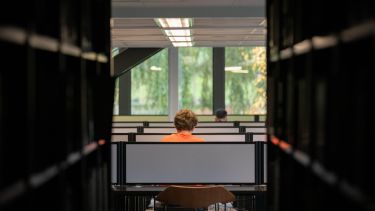Exploring Open Educational Resources
The University Library, in collaboration with White Rose colleagues, has created an Open Educational Resources (OER) toolkit designed to help colleagues find out more about these types of resources and explore the potential they offer.
An inclusive digital learning environment that enables all students to engage effectively in their learning is one of the priorities of the University Vision for Education. Providing students with digital access to recommended reading material is crucial, but can be problematic, either because digital versions are unavailable, or because of the restrictive and unsustainable business models used by some academic publishers. These challenges were brought into sharper focus during the recent pandemic, and were explored in more detail on Library News in May and October 2021.
Open Educational Resources can address some of these common challenges and can be used in conjunction with paid-for resources to support students’ learning.
We took the opportunity at the recent OpenFest event to launch the toolkit locally. Sam Swanney, Subscriptions and Digital Resources Specialist in the Library and a first-time attendee at OpenFest, reflects on the value of OpenFest and how OER impact on her work.
Reflections on OpenFest
I signed up for OpenFest because I have been aware of the concept of open access (OA) and Open Educational Resources (OER) for some time due to working in the content and collections team for the University Library. There have been a lot of changes recently that affect the way the library purchases content and I wanted to understand more about Open Education and what it means to not only the library but also the academic sector as a whole. Attending OpenFest expanded my knowledge exponentially. Not only did I learn about Open Education within my own specialism but I now realised that it is also integral to research.
While at OpenFest, I was particularly interested in the discussion around OER. A recent development in purchasing textbooks as Ebooks (eTextbooks) is that the model has been changed from buying ‘copies’ to a subscription based on the number of potential users. This model elevates the cost and is not sustainable. OER offers an alternative that allows more inclusive access. I was fortunate enough to attend a session on the White Rose Toolkit. A platform resulting from a project between the White Rose Universities of Leeds, Sheffield and York, to advise and inform on everything OER.
The Toolkit was created after careful planning including user experience surveys and interviews. I was extremely surprised by the results of the surveys as I felt I was behind everyone else in getting to know OER but I realise now there are lots more people who will benefit from the toolkit. I was impressed with the site, it is clear and logically mapped, everything is clearly set out and easy to find. There is an introduction, ideal for beginners like me! There is practical help and lots of background about the toolkit project. It is an ideal resource for everyone who is currently or wanting to be involved in OER.
If you want to watch the presentation, and others from OpenFest, you can find the recordings here.
Sam Swanney
Subscriptions and Digital Resources Specialist
University Library

